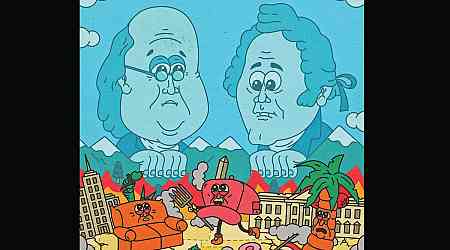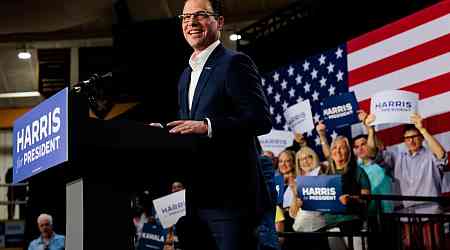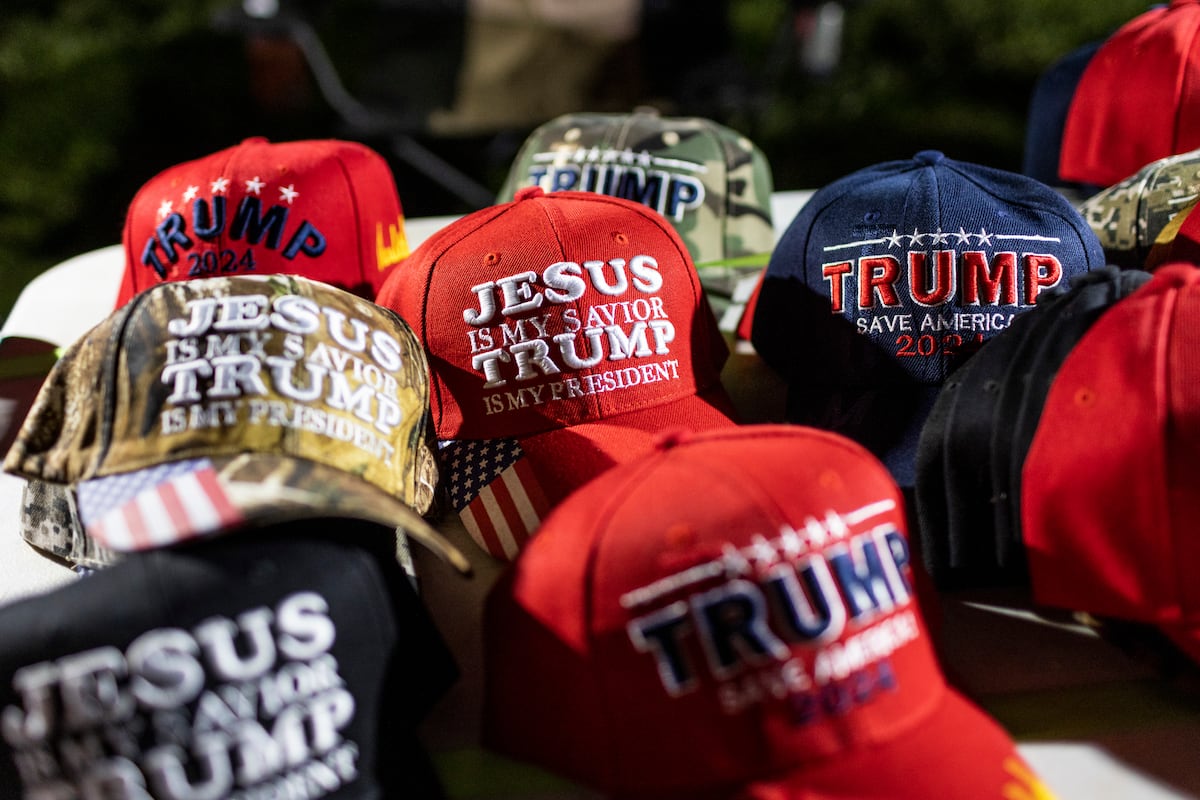If you’re feeling wrung out from the last dizzying weeks of political news, just imagine how the word “unprecedented” must be faring, dragged from its recliner for daily — sometimes hourly — workouts. It needn’t have been.
To understand how we got here, it’s helpful to return to another sweltering summer, a summer when everything actually was without precedent. The 55 men who assembled in Philadelphia 237 years ago to hammer out an American Constitution differed on a great many things. Among the rare points on which most agreed was that the American people could not be trusted to choose a president for themselves. They were easily misled, too often “the dupes of pretend patriots.” The size of the country alone made an informed electorate impossible, given the press, the postal service, and the miserable infrastructure.
Slavery (barely discussed) and the mechanics of representation (much discussed) proved vexing. But few questions so confounded the delegates to the 1787 Constitutional Convention as those pertaining to the American presidency. The Articles of Confederation, which had held the colonies together through the Revolution, had made no provision for a chief executive. How should the president be selected and how long should he serve? By what mechanism could he be removed? Should he report to the legislature? Should Congress be empowered to impeach him? What qualified as an impeachable offense?
No subject proved more divisive or elicited such a staggering array of options. It befuddled the delegates in June. They wrangled with it still in September.
King George III loomed large over the proceedings; a single executive seemed a high-risk proposition. Several Southerners favored a three-person executive, a committee that would represent each region of the fledgling Republic. From the start there was concern that rural voices would be drowned out. Some delegates worried that multiple officeholders would dilute the power of the presidency. Others feared the authority of an American president might come even to exceed that of the king. Would a president not do all in his power to retain his hold on the office? What if he committed crimes? “Will not the immense difference between being master of everything, and being ignominiously tried and punished” move him to cling to the office, Patrick Henry would later ask. (He had refused to attend the convention because, he claimed, he “smelt a rat.”)
The doctrine of separation of powers asserted itself only slowly. It dogged the delegates as they argued back and forth, attempting to deliver an American presidency that was both insulated from and accountable to Congress. The initial idea was for Congress to elect the chief executive, an idea that met with early, unanimous agreement. The more it was discussed, the muddier the matter grew. Perhaps state legislatures should do the electing? One term seemed sufficient in June but wrongheaded by July. It had not yet occurred to the delegates that the president would sit at the head of a political party. In the original conception he was to transcend factions, like a British sovereign.
A presidential term, it was initially agreed, should be seven years. The convention went on to entertain options of six, 11, 12, 15 and 20 years. Early on, the delegates converged upon a single term, though some had a different definition of what one term constituted. The most ardent proponent of executive authority, Alexander Hamilton, believed a president should serve for life. “It may be said, this constitutes an elective monarchy,” he conceded. But the president best able to resist popular pressures, corruption and foreign influence was the president with life tenure. “An executive is less dangerous to the liberties of the people when in office during life, than for seven years,” argued Hamilton.
Benjamin Franklin — at 81, older than everyone in the room, in most cases by decades — demurred. Even if that executive were a man of unerring, incorruptible instincts, what would happen if he were to grow frail? A man’s life often outlasted his prime, observed Franklin, who strayed from his chair only with visible difficulty. He meandered freely from his point. He entrusted most of his speeches to a colleague.
Weeks of heated inconclusiveness followed. How to remove an unfit executive, whether to allow him a veto and the extent of his powers occupied days. So did the question of salary. At one point it was suggested that anyone elected to the presidency be in possession of a “clear unencumbered estate” of at least $100,000, an amount equivalent to roughly $3.5 million today. Franklin objected, generally opposing the idea that rights be restricted to property owners. “Some of the greatest rogues he was ever acquainted with,” he was said to have quipped, “were the richest rogues.” He strongly urged that the president be reimbursed only for his expenses.
Having spent years in London, having observed the British court at close hand, he knew that men made outlandish efforts to grasp and retain lucrative, powerful offices. He warned against a natural inclination to embrace kings. (He may or may not have known that nearly half his colleagues seemed to prefer some form of royal government.) “I am apprehensive, therefore — perhaps too apprehensive,” he warned, “that the government of these states may in future times end in a monarchy.” An awkward moment followed. In the room, after all, stood General Washington, who had served his country for eight years with honor and without profit. Franklin’s motion found a respectful second. It seems never to have returned to the table.
Some parts of that summer sound deeply familiar. There were long weeks of acrimony and about-faces, personal attacks and pouting. There were deadlocks, diatribes and tantrums. Consensus remained elusive for months and arrived grudgingly in the end. Ultimately it was James Madison who crafted the bare bones of the Electoral College, a system born of confusion and bruising exasperation. (When finally it came time for individual states to ratify the Constitution, some Pennsylvania delegates hid themselves away in their boardinghouses, from which they had to be bodily dragged.) Six days a week the delegates suffocated together for hours, practically seated atop each other in a stifling forty-by-forty-foot room. They took no daily breaks. It was not always possible to follow the debate.
In cutting a Constitution from whole cloth, the delegates met with infinitely more negative examples than appealing models. They had reviewed the republics of antiquity. They had examined the modern states of Europe. They had read their Hume, Montesquieu and Blackstone. They found no single formula that suited their purposes. They had agreed on secrecy — the room felt particularly airless as, for security, the windows were locked tight — an oath that has hampered historians ever since but did nothing to staunch the misinformation that flew from Philadelphia. Toward late July a rumor flew around New England that the delegates had resolved to invite George III’s second son to be crowned king of America.
Then, in mid-convention, came something wholly startling. During a particularly bitter June impasse, Franklin ventured to observe that five weeks’ work had yielded lamentably little. At that same Philadelphia address the Continental Congress had appealed for divine illumination. Should this new assembly do the same? The full Congress consisted of 53 Protestants, the majority of them Episcopalians. Two Catholics rounded out the ranks. Many of them were men of deep piety. If they were founding an American Christian nation when they wrote the Constitution it was not obvious: Franklin’s proposal met with a deafening silence. Hamilton gamely weighed in, to comment that an appeal to heaven would likely alarm the country. It reeked of desperation. A North Carolinian objected that Congress was without the funds to pay a cleric. Only three or four delegates, Franklin noted with what sounds like astonishment, thought prayer essential!
Much of what was said in that room suggests that the founders guessed we would sooner or later wind up injecting coconuts and couches into our political discourse. When they were not attempting to craft a viable American presidency, the delegates worried about how to protect a fledgling government from the worst instincts of its constituents. Those too were on full display that July, when the unprecedented collided with the immemorial.
Already once that spring a Philadelphia mob had attacked an elderly German woman in the street. Long suspected of witchcraft, she was rumored to have poisoned a child with a magic charm. On July 10, a week during which the convention wrangled with the three-fifths clause, a formula that struck even its proposer as abhorrent, the widow Korbmacher was again attacked. This time her assailants armed themselves with stones and knives. Korbmacher died from her injuries a week later, while inside the State House the best minds in America designed — for citizens they felt might not best be trusted with their own political choices — the most enlightened government they could imagine. “Prejudices, worm-eaten prejudices, as our old companions, are hard to be parted with,” the Pennsylvania Packet opined about the attack.
The case went to court in October. It is unclear if the presiding judge handed down any convictions, though he did allow himself a comment from the bench. How had a wrinkled old crone caused such a commotion? Now if some of the luscious damsels he had noticed around town, “animated with the bloom of youth, and equipped with all the grace of beauty” had been charged, the accusation would merit attention. Those women, he declared, were created to befuddle and bewitch.
The record is silent as to whether old Korbmacher was childless or owned even a single cat.
Stacy Schiff is the author of six books, including, most recently, “The Revolutionary: Samuel Adams.” This article originally appeared in The New York Times.
function onSignUp() { const token = grecaptcha.getResponse(); if (!token) { alert("Please verify the reCAPTCHA!"); } else { axios .post( "https://8c0ug47jei.execute-api.us-east-1.amazonaws.com/dev/newsletter/checkCaptcha", { token, env: "PROD", } ) .then(({ data: { message } }) => { console.log(message); if (message === "Human






























